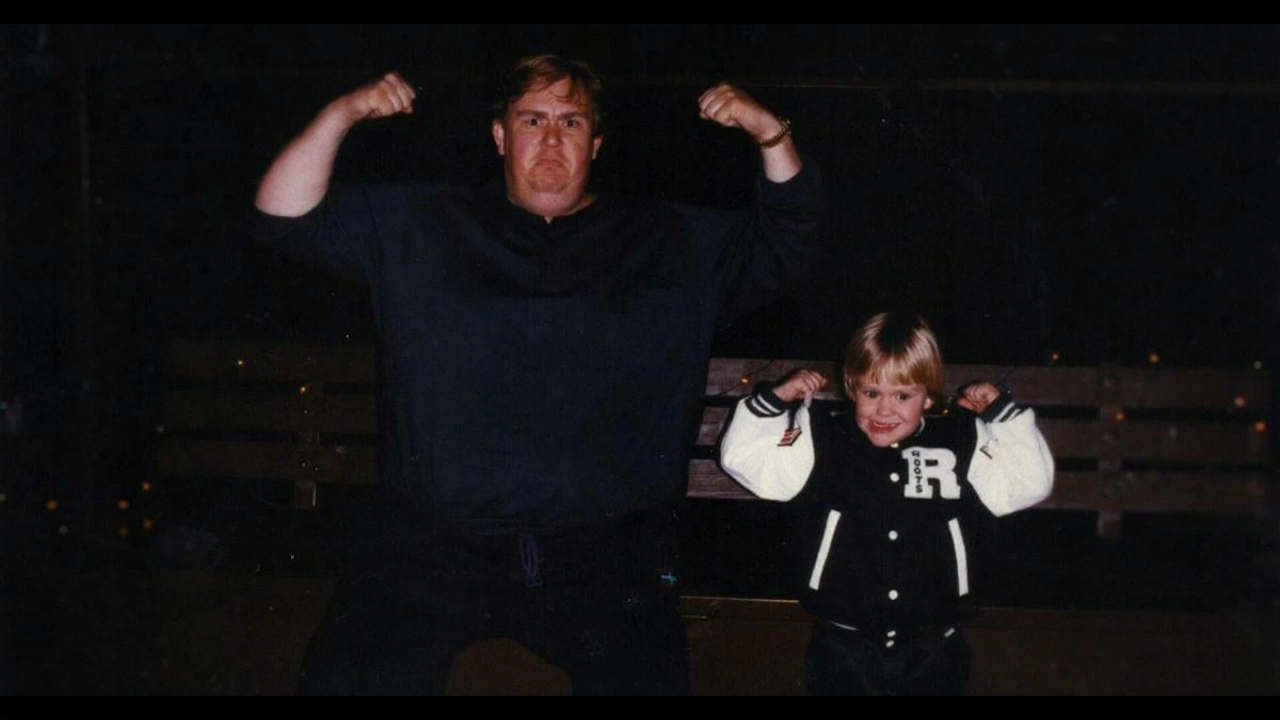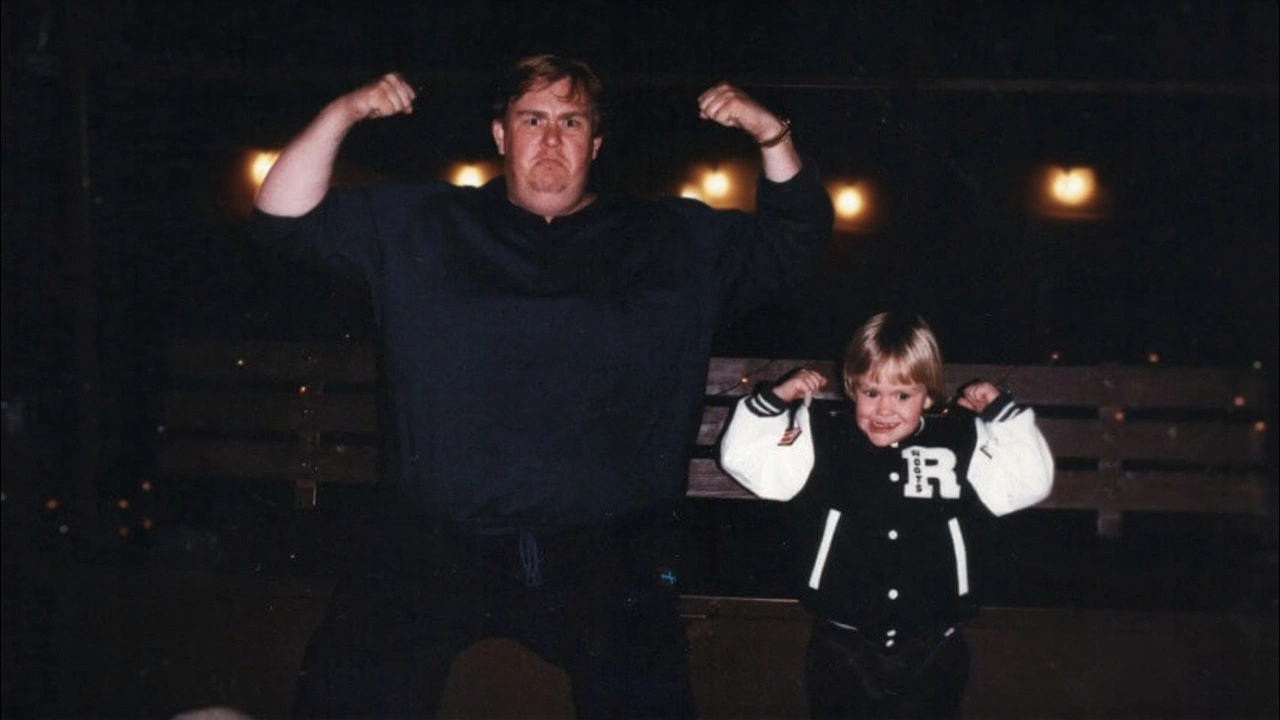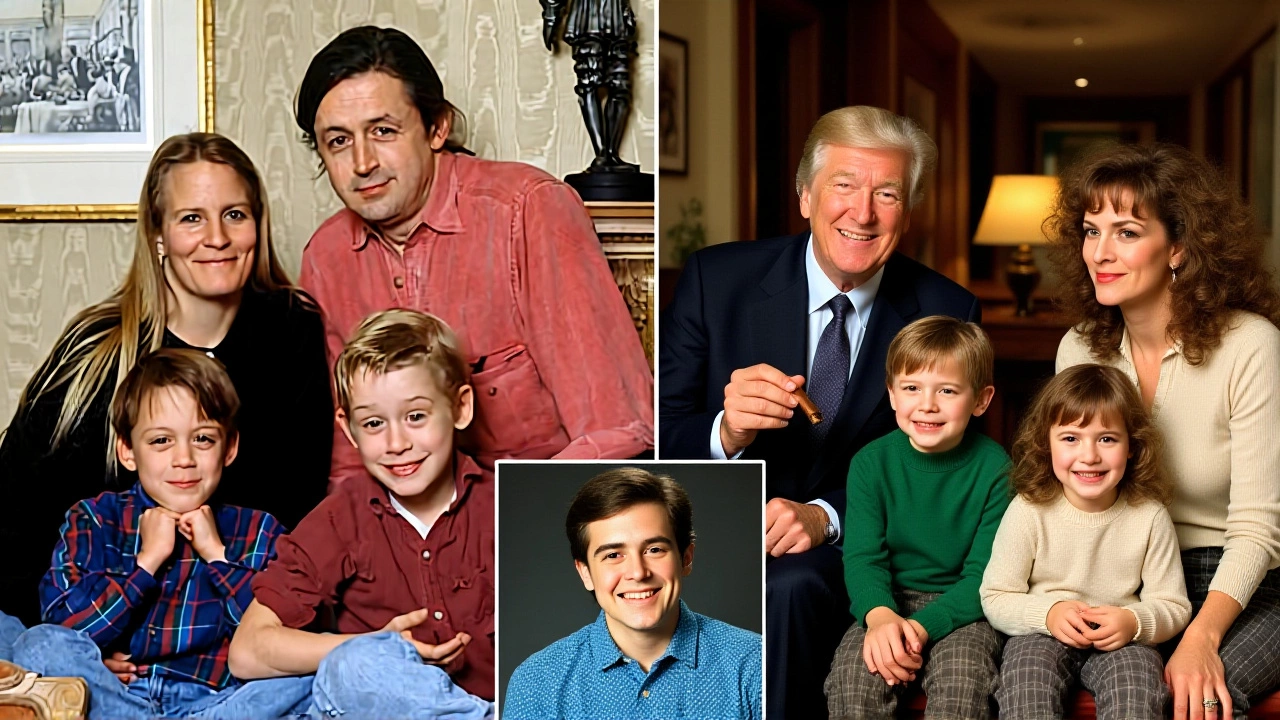TIFF 2025 Opens with 'John Candy: I Like Me' — A Heartfelt Tribute to Canada’s Beloved Comedy Star
 Nov, 24 2025
Nov, 24 2025
The 50th Toronto International Film FestivalRoy Thomson Hall didn’t just kick off with a movie — it opened with a memory. On Wednesday, September 4, 2025, at 7:00 PM Eastern Time, the lights dimmed in Toronto for the world premiere of John Candy: I Like Me, a 113-minute documentary that doesn’t just recount the life of Canada’s most beloved comedic actor — it resurrects him. Directed by Colin Hanks and produced by Ryan Reynolds through Amazon MGM Studios, the film turned the gala into a cross-generational reunion of laughter, tears, and raw honesty — with John Candy’s children, Jennifer Candy and Christopher Candy, sitting front row, holding hands as the screen lit up with their father’s face.
A Canadian Icon Returns to His Roots
John Candy: I Like Me isn’t a standard biopic. It’s a love letter stitched together from home videos, candid interviews, and rare outtakes — some never seen outside Candy’s family album. The film opens with Bill Murray, Candy’s Stripes co-star and fellow Second City alum, struggling to find something negative to say about him. "I couldn’t," Murray admits, smiling through tears. "He was just too good at being human." That moment sets the tone: this isn’t about fame. It’s about feeling seen. Born in Newmarket, Ontario, and raised in Toronto, Candy’s journey from a kid who loved slapstick on CBC to a Hollywood heavyweight is mapped with startling intimacy. The documentary traces his early days at Second City in Chicago, where he learned comedy wasn’t about punchlines — it was about empathy. His characters — the lovable lug in Uncle Buck, the endlessly patient Neal in Planes, Trains and Automobiles, the awkward dad in Splash — weren’t just roles. They were extensions of his own fears, his own longing to be liked.The Weight of Being Loved
What makes this documentary devastating isn’t just what’s shown — it’s what’s said. Archival interviews reveal journalists asking Candy, with a straight face, if he’d consider weight-loss surgery. One reporter even asked, "Do you think your size keeps you from being taken seriously as a dramatic actor?" The film doesn’t flinch. These clips, now unthinkable in today’s media climate, expose a systemic cruelty masked as humor. "He carried that weight — literally and emotionally," says Catherine O’Hara, his Home Alone and SCTV co-star. "He’d laugh it off. But I’d see him staring at his reflection after a long day. He didn’t hate himself. He just wished the world didn’t keep reminding him he didn’t fit the mold." The film also delves into Candy’s mental health, a rarely discussed layer of his persona. His father died of a heart attack at 46. Candy was 11. "He told me once," says Jennifer Candy, "that every time his heart raced, he thought it was the end. He never believed he’d live past 45." He didn’t.
A Legacy That Refuses to Fade
The documentary’s title comes from a simple, profound line Candy once said in an interview: "My wife likes me. I like me." It wasn’t arrogance. It was survival. In a business that often reduces people to their image, Candy clung to self-acceptance as an act of rebellion. His collaborators — Dan Aykroyd, Steve Martin, Martin Short, and even archived audio from John Hughes — paint a picture of a man who showed up early, stayed late, and never let ego get in the way of a good joke. "He made everyone around him better," says Tom Hanks. "Even when he was the one getting the laughs, he made sure you looked good doing it." The film’s emotional crescendo arrives in its final minutes — a montage of Candy’s most iconic scenes, intercut with footage of his children watching them for the first time as adults. One clip shows a young Christopher, maybe five, sitting on the couch next to his dad during a rerun of Summer Rental. "Dad," he says, "you’re funny." Candy laughs, ruffles his hair, and says, "I like me."What Comes Next
John Candy: I Like Me won the Audience Choice Award for Best Documentary at the 2025 Cinéfest Sudbury International Film Festival, a fitting honor given Candy’s Canadian roots. But its true impact will be felt when it streams globally on Amazon Prime Video starting October 10, 2025. For a generation that only knows Candy through YouTube clips and streaming reruns, this is the first full portrait — unvarnished, warm, and deeply human. Prime Minister Mark Carney, who attended the TIFF premiere, called Candy "a national treasure who made us laugh when we needed it most." And in a time when comedy often leans into cynicism, Candy’s work — and now this film — reminds us that kindness can be the funniest thing of all.
Why This Matters Now
Thirty-one years after his death on March 4, 1994, in Durango, Mexico, while filming Wagons East, Candy’s absence still echoes. But this documentary doesn’t mourn him — it celebrates how he lived. It challenges Hollywood’s enduring obsession with body image, not just as a historical footnote, but as a continuing crisis. And it gives his children, and millions of fans, something they’ve waited decades for: the chance to say, "We remember you. And we still like you."Frequently Asked Questions
Why was the premiere of 'John Candy: I Like Me' so significant for Toronto?
Toronto was Candy’s hometown — born in Newmarket, raised in the city, and shaped by its comedy scene, especially Second City. Having the opening night of TIFF 2025 honor him at Roy Thomson Hall was a homecoming. For many Torontonians, it felt like the city was finally giving its native son the grand tribute he never got while alive.
What new material does the documentary reveal about John Candy’s personal life?
The film includes never-before-seen home videos of Candy with his children, intimate audio diaries he recorded in the early 1990s, and candid conversations with his wife, Rosemary, about his fears of dying young. His children also share letters he wrote them before his death — some filled with jokes, others with quiet reassurances. These moments transform him from a screen icon into a real father.
How does the documentary handle Candy’s death?
It doesn’t dwell on the tragedy. Instead, it frames his heart attack as the heartbreaking culmination of lifelong struggles — with body image, pressure to perform, and the fear of dying young after his father’s early death. The film ends not with his final moments, but with his children laughing at an old home video of him doing his "chicken dance" in the kitchen.
Why was Ryan Reynolds involved as a producer?
Reynolds, a Vancouver native and longtime Candy fan, has openly called him his comedic hero. He saw the film as a chance to honor someone who made comedy feel human. His production company, Maximum Effort, helped secure archival access and funding. He also personally reached out to every interviewee, including Bill Murray and Tom Hanks, to ensure their stories were told with care.
Is there new music in the documentary?
Yes. Canadian-American singer Cynthia Erivo recorded an original song titled "I Like Me," which plays over the closing credits. The track blends jazz and soul, echoing Candy’s own love of classic American music. It was composed to feel like a lullaby — gentle, warm, and full of quiet pride.
How has the public reacted to the documentary so far?
Audiences at TIFF and Cinéfest Sudbury have given it standing ovations. Critics describe it as "heartfelt and heartbreaking," with many saying it made them rewatch Planes, Trains and Automobiles the next day. Social media is flooded with personal stories from fans who say Candy helped them feel less alone — especially those who, like him, struggled with body image or self-worth.